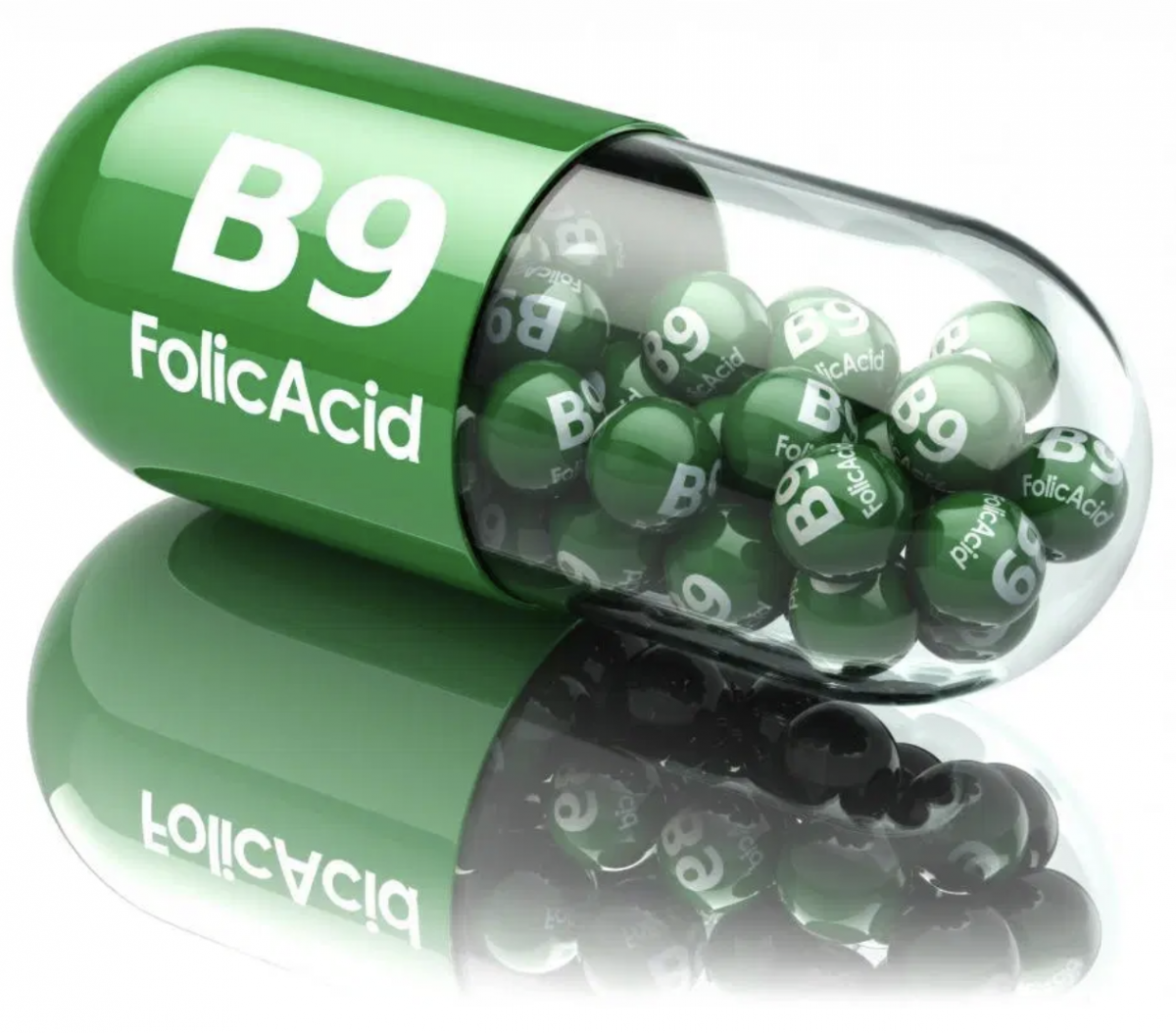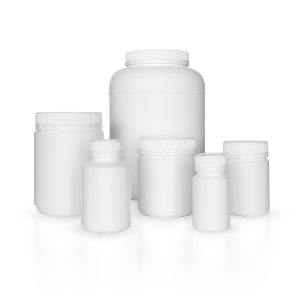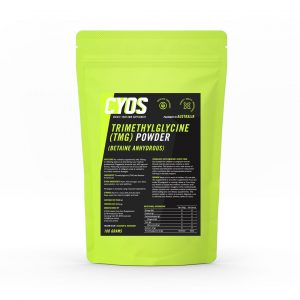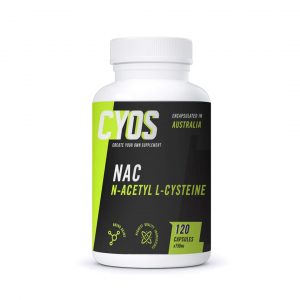


Vitamins & Minerals
J J 02 Feb 2021
Folate or Folic Acid? Plus the advantages of Methyltetrahydrofolate
Share
Folate is also known as B9, as a B Vitamin it is absorbed directly into the blood and is needed to make red and white blood cells in the bone marrow, to produce DNA and RNA and to convert carbohydrates into energy. Folate is especially important for pregnancy, infancy and adolescence, when you are going through times of rapid growth. Meats, milks and milk products are poor folate sources and heat and oxidation during cooking and storage can destroy as much as half of the folate in foods.
Folate occurs naturally in many foods, such as:
- Leafy green vegetables, spinach, broccoli, asparagus and lettuce
- Beans, peas and lentils
- Fruits like lemons, bananas and melons
- Fortified and enriched products like some breads, juices and cereal

Many people also know Folate as Folic Acid, which is the term used for the synthetic form exclusively in dietary supplements and food fortification. The bioavailability from folate ranges from 50% for foods to 100% for supplements (folic acid) taken on an empty stomach. The recommended dietary intake considered both folic acid and folate when establishing the guidelines.
Folic Acid
Folic Acid is the synthetic, man made version of Vitamin b9. It is used in supplements and food fortification such as in flour, breakfast cereals and juices. One difference between folate and folic acid is that with folic acid not all of it is converted into the active form of vitamin b9 – 5-MTHF in your digestive system. Unmetabolized folic acid is commonly detected in people’s bloodstreams, which is a cause for concern as high levels of unmetabolized folic acid have been associated with several health problems.
Researchers believe the best way to get Vitamin B9 is from whole foods containing folate from the list mentioned above. Folic Acid is the most common supplemental form of B9 but supplements containing 5-methyltetrahydrofolate (5-MTHF) are considered adequate alternatives to folic acid.
Folate Deficiencies
Folate deficiencies may develop from inadequate intake or from impaired absorption or an unusual metabolic need for the vitamin. Metabolic needs increase in cases such as pregnancy, pregnancy involving twins or triplets, cancer, chicken pox, measles, burns, blood loss and GI tract damage. Diseases that affect the gastrointestinal tract such as Crohn’s disease, celiac disease and severe kidney problems that require dialysis can cause folate deficiencies. It’s always important to get regular blood check ups done with your GP if you suspect you could have a deficiency of some kind, but things to look out for with a folate deficiency are:
- Fatigue
- Greying hair
- Mouth Sores
- Tongue Swelling
- Growth Problems
- Confusion
- Elevated homocysteine
Folate deficiency can also cause anemia, which can then deprive your tissues of oxygen. Some symptoms of anemia include:
- Fatigue
- Weakness
- Pale Skin
- Shortness of breath
- Lethargy
- Irritability
The MTHFR Gene
MTHFR stands for methylenetetrahydrofolate reductase. There’s been recent concern that certain health issues are associated with MTHFR mutations so testing for this has become more common. The genetic mutation may lead to high levels of homocysteine in the blood and low levels of folate and other vitamins. An MTHFR gene mutation may affect the way you metabolise and convert nutrients from your diet into active vitamins, minerals and proteins in the body. It could also affect your hormone and neurotransmitter levels, brain function, digestion, cholesterol levels and more. The MTHFR gene inhibits the way the body processes folic acid and other important B vitamins so taking the bioavailable form of folate – methylated folate may help your body absorb it better. Conditions that have been proposed to be associated with MTHFR include; cardiovascular diseases, depression, anxiety, bipolar disorder, schizophrenia, colon cancer, acute leukemia, chronic pain and fatigue, nerve pain, migraines, recurrent miscarriages, pregnancies with neural tube defects like spina bifida and anencephaly.
Folate and Pregnancy
Folate or Folic Acid has been proven to be effective in reducing the risks of neural tube defects. The brain and spine develop in early pregnancy from the neural tube and defects in its formation can result in nervous system disorders and death. It is recommended to take folate supplements before conception and to continue throughout pregnancy. Most women are recommended to consume 400 micrograms of folate per day which can be easily reached through eating an array of fruits and vegetables. Women who are planning a pregnancy should consume an additional 400 micrograms per day in the form of a supplement or fortified foods to increase bioavailability. Food Standards Australia and New Zealand (FSANZ) has mandated that Australian flour millers are required to add folic acid to all flour used in bread making except those marked as ‘organic’. High intakes of folate can also lead to complications such as a Vitamin b12 deficiency so it’s important to not exceed 1000 micrograms per day.

Folate and Heart Disease
One of the main roles of folate in the body is to break down homocysteine, if there is no folate in the body then homocysteine accumulates which seems to enhance blood clot formation and arterial wall deterioration. Researches say a daily dose of folic acid could reduce a person’s risk of heart disease and stroke by 20%. Increasing folic acid intake and decreasing homocysteine could reduce the risk of heart disease, blood clots in the legs and stroke.
Folate (Calcium L-5- Methyltetrahydrofolate)
At CYOS we sell both Folic Acid and Folate (Calcium L-5- Methyltetrahydrofolate) powder.
Folate (Calcium L-5- Methyltetrahydrofolate) is the predominant form of dietary folate and the only species normally found in the circulation, which means it is the folate that is normally transported into peripheral tissues to be used for cellular metabolism. Bioavailability studies have provided strong evidence that L-5-methyl-THF is at least as effective as folic acid in improving folate status. It may also have advantages over taking folic acid. The potential for masking the symptoms of a vitamin b12 deficiency may be reduced and L-5-methyl-THF may be associated with a reduced interaction with drugs that inhibit dihydrofolate reductase [5].
SUMMARY
Folate is the natural form of Vitamin B9 and it is best consumed through whole foods and eating plenty of fruit and vegetables. People who are pregnant need to pay careful care and consideration to their folate needs and it’s important to be aware if you have the MTHFR gene if you’re struggling to conceive or experiencing any of the conditions mentioned associated with the MTHFR gene. Alternatives to folic acid supplements include 5-MTHT or whole foods such as leafy greens.
References:
[2] – ncbi.nlm.nih.gov/books/NBK66131/
[3] – https://medlineplus.gov/genetics/gene/mthfr/
[4] – https://pubmed.ncbi.nlm.nih.gov/25943647/
[5] – https://pubmed.ncbi.nlm.nih.gov/20608755/#:~:text=L%2D5%2Dmethyl%2Dtetrahydrofolate,be%20used%20for%20cellular%20metabolism.
https://www.webmd.com/diet/qa/what-is-the-difference-between-folate-and-folic-acid#:~:text=Folate%20is%20the%20generic%20name,and%20added%20to%20fortified%20foods.
CYOS blog content is for informational and educational purposes only, and should not be considered medical advice, diagnosis or treatment recommendations. Always consult with your doctor or medical professional before using any dietary supplements or if you suspect you have any medical concerns or issues.
Share
SHOP OUR PRE-MADE CAPSULES RANGE
100% Pure • Encapsulated in Australia • Vegetarian Capsules • No Fillers • No Additives • No Binders • No Anti Caking Agents • Allergen Free • No Preservatives • Non GMO
Our best sellers
 Search Products
Search Products
 All Products A-Z
All Products A-Z
 Pre-Made Capsules
Pre-Made Capsules
 Additives
Additives
 Amino Acids
Amino Acids
 Anti-Oxidants
Anti-Oxidants
 Beauty
Beauty
 Bioactive Compounds
Bioactive Compounds
 Bulk Items
Bulk Items
 Empty Capsules
Empty Capsules
 Fats & Oils
Fats & Oils
 Fibers
Fibers
 Herbal Extracts
Herbal Extracts
 Joints
Joints







 Mushroom Extracts
Mushroom Extracts Nootropics
Nootropics Packaging
Packaging Probiotics & Digestion
Probiotics & Digestion Proteins
Proteins Sleep
Sleep Stimulants
Stimulants Super Blends
Super Blends Super Foods
Super Foods Tools
Tools Vitamins & Minerals
Vitamins & Minerals Weight
Weight Workout
Workout